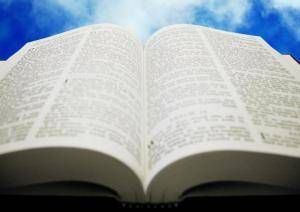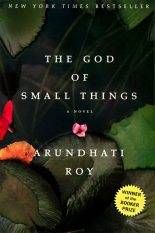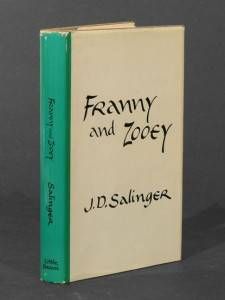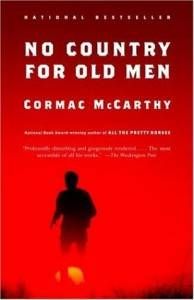
Books We “Like”: Uncollected Thoughts on Facebook and Reading
I don’t think I was alone in finding myself perturbed when Facebook changed the look of its “Arts and Entertainment section” earlier this year. For a long time I had been developing an interest in the books Facebookers choose to list on their profiles and I found that Facebook’s change from a simple dignified list of “favorite books” to gaudy pictures of book covers to be horrible on both aesthetic and clerical grounds. In a certain sense, however, Facebook’s new system of literary taxonomy makes detecting trends in the book preferences of its users (i.e., of all of us) a little easier. In forcing its users to list just five or less books prominently on their profile, with the option to list many more that the potential viewer can see upon clicking the conspicuously labeled “more” tab, Facebook is giving us a good picture of what our friends would like to be thought of as having read by at least forcing them to narrow down the top tier. The results are sometimes peculiar. The following is an anecdotal list of oft chosen “top tier” picks, rather than an empirical one.



Anything by Kurt Vonnegut: I know this was promised as a list of those books that are most commonly listed on Facebook, not their authors. But anyone who has ever known a true Kurt Vonnegut fanatic knows that, somewhat uniquely amongst this species within the broader book geek flora and fauna, Vonnegut nuts judge one another not in terms of which Vonnegut book their cohorts privilege above all others but in terms of a singular question, almost a singular piety: “how many Vonnegut books have you read?” To put it out there in the open, the present writer has read God Bless You Mr. Rosewater, Cat’s Cradle, and Mother Night, which on a Vonnegut fan-boy scale of 1-10, puts me at about 0.5 (and yes, I am writing a paragraph about Vonnegut without having read Slaughterhouse Five, send your cultural taste mongering cartel after me if it makes you feel better). There are really two kinds of Vonnegut readers, those like myself, who after a few very enjoyable rides in our late teens, get the idea and move on, and…Vonnegut fans. Kurt Vonnegut’s most powerful insight is that modern world is already science fiction. If sufficiently de-familiarized, we can come to see ourselves not as approaching a horrid morally topsy turvy dystopia, but as already residing within one. In Mother Night, the tension is rendered ad-absurdum, with Jack Cambell, who sends coded messages to American intelligence in the form of anti-Semitic screeds for a radio program within the heart of the Third Reich. In Hegel’s terms, the question here is obvious, if the content of our actions is completely good, can it absolve us from a form that is utterly evil? For Vonnegut the answer seems to be….as his protagonist faces immanent execution by an Israeli court…”you are who you pretend to be,” which always seemed to me to be a way of solving a brilliant allegory with a catechism. Alas, this is what bothered me about the others too, which is why, before Facebook switched over to its new visual format, I could not list myself as a lover of “Anything by Kurt Vonnegut.” Vonnegut fans also seem to be over represented in the ranks of Mets fans. Go Figure.
J.K. Rowling–Harry Potter. Alas, no list of popular books is complete without The Boy Who Lived (Henceforth, TBWL). Don’t snub your nose, however, nose snubber. Rowling’s brilliant insight was that the most fanciful wish of any child, to possess magical powers and dwell within a fairy tale, could be effectively combined with that most familiar and universal setting of adolescence, school. Add a dash of the most universal feelings of adolescence to the escapist cauldron, feelings of abandonment, intense friendship, discovery of sexual love, and the addictive synthesis would transform any nay-sayer into a believer in TBWL like a bottle of polly juice potion—(but in the reverse sense, because many were transformed on the inside while remaining militantly snobbish without, ((one more example of why Vonnegut is wrong, and Sigmund Freud is right, you are precisely not who you pretend to be)). Since “likers” of Harry Potter are everyone, its difficult to typify the pages that come with them: we’re talking everything from Dr. Dre’s “The Chronic” to “Glee”, to…”The Bible.”

Nothing—Sad but true, our list must end with the most common form of book listing on Facebook, that of listing no books at all…Nothing…nada…zilch. It would be easy to let the language of decline to run riot and lament a world where superfluous web browsing and video gaming has taken the place of reading. If only this were true. Humanity, on par, is more literate and spends more time reading today than ever before. (Nearly) Universal literacy is an achievement of the 20th century, and the necessity of at least remedial writing skills for participation in many forms of human social interaction (read: the internet) is an emerging reality only of the 21st. While the act of reading and writing is more omnipresent in human culture, what is being blurred is the distinction between the great authors and the notes we write in the margins of their books. Those margin notes are now online comments, and in many cases can be posed directly to the authors themselves as easily as their works can be posed to us. This doesn’t mean that the nothingness that envelopes many book-lists on Facebook leaves no cause for concern about the future of literature, but any philosopher knows that there is more to say about nothingness than the absence that meets the eye.
So, in that spirit, what do you all think of the present state of reading? What books have you “liked” on Facebook?
















